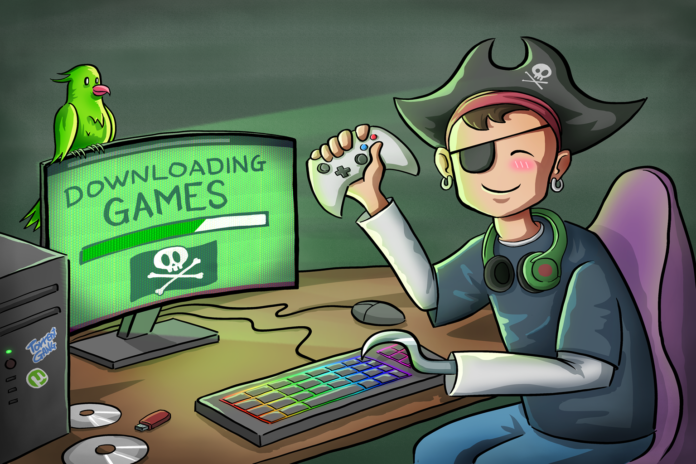When I was four, I wanted to be a pirate when I grew up. Well, a ninja-pirate, but still. I’m all grown up now, and although I’ve not traveled the seven seas, nor been cursed by booty, I have met a few beardless, swordless pirates. In fact, my best friend is a pirate, and the more I get to know him, the more I’m convinced piracy is not as unethical as the You Wouldn’t Steal A Car ads lead us to believe. By observing how he pirates video games, I have come to believe in ethical piracy.
Piracy can be useful, allowing consumers to buy their games in a more intelligent and calculated manner, leading to less regret. My friend, the privateer, still buys games — he just bootlegs them first. Just like test driving a car, this allows him to make better decisions with which games he spends his money on. He can decide if he likes the game, but he also tests if his computer can handle the game on a performance level. If it’s deficient, he knows to invest in newer components for his PC before purchasing the game. He also gets to see if the reviews are accurate.
Ethical pirates and serious gamers like my friend understand that people need to be paid for good quality games to be made, and are willing to pay for a game if they deem it worth the money — they just don’t want to support bad ones. When Metal Gear Solid 5 was being badly reviewed, my friend relayed that he pirated a copy so that he could try it for himself. Contrary to the negative criticism, he enjoyed it. In fact, my friend liked it so much that when he did buy it, he splurged on a special edition that came with a life-scale model of the Phantom Arm which now adorns his living room as a trophy. See, pirating didn’t stop him from buying the game, in fact in this case it drove him to spend more money than he would have had if he hadn’t known how good it was.
Game developers covet the sales of paraphernalia like clothes and models, and piracy can clearly assist with that. Let’s say I can’t afford the new Zelda game, or I’ve never played Zelda before. With the help of a pirate, I can play it for free, fall in love with it, and talk it up to my friends (some of whom might purchase it, driving sales). Now we are all loving it, and my friends (good as they are), decide to buy me a Link plushie for my birthday. The sales of any items related to the game help the company market the product, and makes it a part of the culture. None of this might have happened if I hadn’t pirated a free copy. Piracy allows for interest to grow, which is ultimately good for the producers and studios.
The first argument we hear when discussing piracy is that the industry loses on the sales they would have had because of pirates. There’s a flaw in this logic. Many (if not most) who would pirate a game can’t actually afford to buy it, so the industry would have never seen those sales anyways; especially considering games now regularly cost over $100. The pirate that can afford the games often still buys them after they have determined whether or not they like it. A 2015 study suppressed by the European Union (EU) actually demonstrated that in the case of video games, piracy actually resulted in increased sales according to the study, “The positive effect of illegal downloads and streams on the sales of games may be explained by players getting hooked and then paying to play the game with extra bonuses or at extra levels.”
Piracy adds value for developers, driving sales when the game is presented at a discount. If you can’t afford a game, but want to sample it, pirating gives you a free trial. Once a sale comes around, if you enjoy it, I urge you to purchase it. With the death of the video rental market, there are few options left to try before you buy, and if you need to really watch your spending, you’re going to opt for a less risky purchase. Personally, I can’t afford to waste my money. So, no, you wouldn’t download a car — as the meme goes — but aren’t you more likely to buy one if you can test-drive it first?


